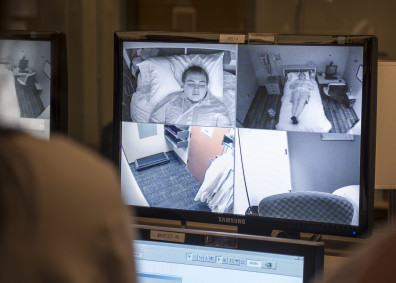10 Years of WSU Health Sciences: 10 research highlights since 2010

By Judith Van Dongen
When the Washington State University Board of Regents designated WSU Spokane as the university’s official health sciences campus on Sept. 3, 2010, it paved the way for growth and transformation of health sciences education and research in Spokane.
Today, we’re sharing 10 research highlights from the past 10 years. This isn’t a ranking, but rather a showcase of the incredible, world-changing research on campus in the past decade.
To the highlights!
Progress toward improved treatment of cancer and inflammatory diseases

Research conducted on our campus has identified a protein that plays a critical role in heart damage caused commonly used anti-cancer drugs, which could lead to new treatment strategies that could increase cancer survivors’ life expectancies. It has also led to the development of a novel technology to package cell-killing drugs inside nanosized particles that can deliver them directly to inflammation-causing cells, offering promise for the treatment of diseases such as sepsis, stroke, and acute lung injury.
Accelerated growth in research on addictions and mental health

Research on this topic spans multiple colleges and campuses and includes current and past work on opioid abuse in rural areas; the use of marijuana by pregnant women and people with chronic pain; drug use trends in teens and young adults; reward-based treatment for alcohol abuse; and candidate drugs for smoking cessation. Much of the research comes out of the Behavioral Health Innovations unit, Analytics and Psychopharmacology Laboratory, and Program for Excellence in Addictions Research.
Addition of world-class health disparities research

In 2015, we brought to WSU the Institute for Research and Education to Advance Community Health (IREACH), a group of 16 researchers who study health disparities in Native populations and other underserved groups. They have since secured more than $49 million in new grant funding for research centers and programs focused on physical and behavioral health, including alcohol abuse and chronic conditions such as high blood pressure, heart disease, and Alzheimer’s disease/dementia. With other WSU partners, they cofounded a new practice-based research network that connects WSU researchers with rural, tribal and underserved community clinics around Washington and beyond.
Advances in our understanding of why we sleep and how sleep loss and shift work affect us

Human and animal studies conducted by researchers in the WSU Sleep and Performance Research Center have identified a gene that can predict the impact of sleep loss on cognitive flexibility, shown how shift work disrupts metabolism, and provided new clues on how sleep works in the brain, among many other discoveries.
Research that contributes to the public health response to COVID-19

Many of our health sciences researchers recently began research to address various issues related to the COVID-19 pandemic. A few examples include the creation of a COVID-19 tracking tool for rural areas, a twin study that looked at changes in physical activity and mental health during Washington State’s stay-at-home order, and establishment of a new research collaborative to study the impacts of COVID-19 on mothers, infants, and families.
Establishment of the Center of Excellence for Natural Product-Drug Interaction Research

Led by WSU, this NIH-funded, multi-institutional effort is working to develop standardized approaches to identify and measure interactions between natural products and conventional drugs. Supported by a five-year, $10 million grant from the National Center for Complementary and Integrative Health, the center has conducted studies on four high-priority natural products: cannabis, goldenseal, green tea, and kratom.
New research focus on health and the built environment

We recruited several new researchers who are studying the relationships between health and the built environment. Their work has used Washington State public data to uncover links between primary care access and mortality rates, ties between neighborhood access to grocery stores and dietary patterns, racial and socioeconomic disparities in premature death rates, and neighborhood factors that influence one’s chances of living to age 100.
Research to protect the occupational health and safety of essential workers

Scientists on our campus are conducting studies that are helping to keep essential workers—such as nurses, police officers, and National Guard members—healthy and safe on the job. With funding from the U.S. Department of Defense and other sources, their work has looked at implicit bias, fatigue, and exertional heat illness, among other issues.
Medical discoveries that could improve quality of life for children and their caregivers

Work by a WSU researcher has helped inform newborn screening recommendations for galactosemia, a rare genetic disorder that affects the body’s ability to process sugars found in milk. Other campus work has identified a novel way to detect autism early on that is being developed into a new handheld screening device; honed in on autism risk factors; and linked a gene to sleep problems in autism.
Research to improve patient access to care

Our researchers have studied the financial and quality-of-care outcomes of pharmacists diagnosing and treating minor ailments in a community pharmacy setting, as compared to urgent care/walk-in clinics and emergency rooms. This and other WSU studies are setting the stage for expanded access to care, with particular benefit for those who live in rural and underserved areas or who lack transportation access.